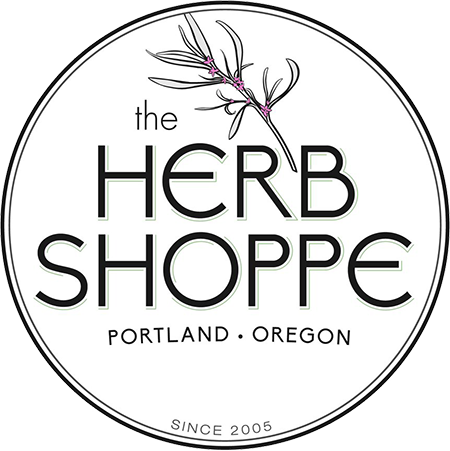This month, we shine light on another nutritive herb that is abundant in vitamins and minerals, and is the perfect plant ally for April as we continue nourishing our vitality and energy during our transition from cool, rainy spring days into those warm and expansive summer months. As we plant our seeds (both figuratively and literally) this spring, let us turn to alfalfa leaf, an herb associated with good fortune, to help us cultivate abundance from the inside-out this season.
The use of alfalfa spans across time and space. For thousands of years, alfalfa leaf has been used as food for livestock
and humans. It has remained a medicinal staple among many different cultures, which is one of the reasons I think alfalfa is so special. At first, this ground cover which grows abundantly like grass and resembles clover or peas, may not seem like much. However, when we take a closer look at alfalfa, we can begin to understand the special qualities it possesses, appreciating its versatility and admiration that has spanned centuries. One of the earliest written records of alfalfa comes from China in 2939 BCE, where it was documented that alfalfa was used medically to help treat ulcers and to increase appetite. In ancient Greece, alfalfa was considered an important good, and was imported frequently after citizens learned of it from the East. In Arabic, the word for alfalfa translates to “father of all foods', which is a perfect name for this herb considering it was used throughout the middle east for feeding cattle and horses. Additionally, in the practice of Ayurveda, alfalfa leaf medicine is revered for its antioxidant content which helps to reduce inflammation and the oxidative stress damage caused by free radical cells in the body.
Alfalfa leaf is another phytoestrogen herb, similar to red clover blossom. Phytoestrogen plants mimic the effects of estrogen in the body, and may be helpful in balancing hormones when estrogen levels are low. Therefore, alfalfa can be a helpful friend when dealing with menstrual pain or irregularities due to estrogen deficiency. Alfalfa is also recognized for its ability to lower cholesterol and blood pressure, as well as increase lactation and breast milk production. Alfalfa may also help to flush excess water and relieve bloating. Broadly speaking, alfalfa is a great herb to utilize when the body is needing a gentle detox or help absorbing vitamins and minerals.
Also similar to clover, alfalfa leaf is a common addition to livestock feed due to its high vitamin, fiber, and mineral content, and because it is easy and cheap to grow and harvest. All parts of alfalfa are edible, including the seeds, sprouts, and dried herb! Many people like to consume alfalfa sprouts, which make a deliciously nutritious addition to salads and sandwiches. Alfalfa contains magnesium, iron, vitamin K, vitamin C, and copper. It has a low calorie count, and contains a notable amount of fiber and protein as well.
I love to add alfalfa to my routine when I have been feeling sluggish, or if I haven’t been incorporating a lot of fresh green foods into my diet, in which alfalfa helps to supplement. I personally find this herb combines well with other nutritive herbs like oatstraw, red clover, nettle, or lemon balm.
So, go ahead and give this ancient herb a try this month and treat yourself to a little dose of vitality and nutrition! You can find alfalfa leaf in our Vital Greens Powder, 14-Day Fresh Start Detox Kit, Spring Greens Sipping Vinegar, When You’re Expecting Tea, Power Greens Smoothie Blend, Nutritive Beginnings Tincture, Spring Greens Salad Dressing Seasoning, Brain Food Powder, Body Rebuilder Tincture, and more!
References:
Alfalfa: Benefits, Nutrition Facts & Side Effects (healthline.com)
A Complete Guide to Magical Herb Lore | Art of the Root
Alfalfa: Folklore, Healing & Magical Attributes (magickalspot.com)

